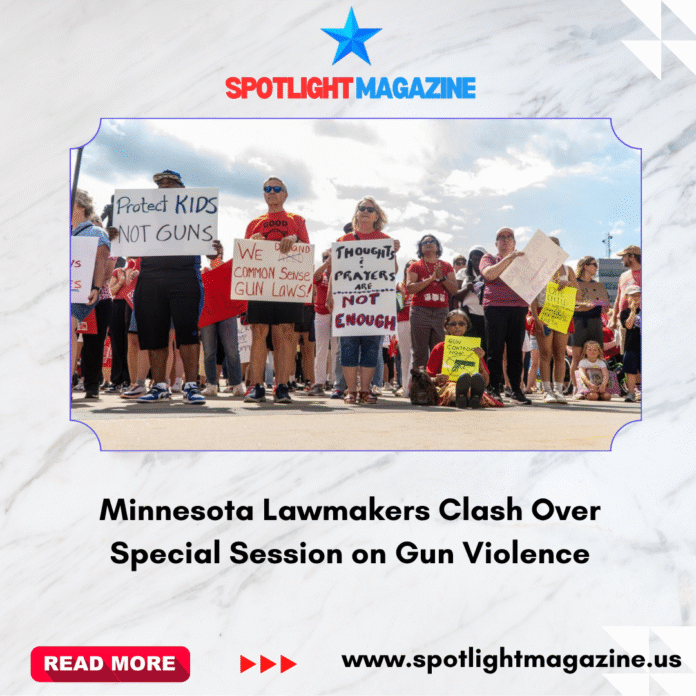Minnesota leaders are back at the negotiating table over a possible special session on gun violence as pressure grows following the tragic Annunciation Catholic School shooting in August. Governor Tim Walz and Democratic-Farmer-Labor (DFL) leaders had proposed a special session starting October 6 to address gun reform, but Republican leaders refused to sign on, calling for more discussion.
The proposal outlined nine measures, including banning assault weapons and high-capacity magazines, expanding background checks, and increasing funding for school safety and mental health programs. But Republican leaders argued the plan left out proper legislative procedures. Rep. Lisa Demuth (R-Cold Spring) said the proposal limited input from lawmakers, while Sen. Harry Niska (R-St. Paul) accused Walz of using the tragedy for political gain.
Walz, who is the only one with the power to call a special session, introduced the idea after the Annunciation shooting that left several students injured and the community shaken. DFL Senator Erin Murphy (St. Paul) said she was disappointed by the delay, emphasizing that Democrats’ proposal already allowed for full legislative debate.
Minnesota already has several gun control measures, such as background checks, red flag laws, and concealed carry permits. However, with the state’s closely divided House, passing an assault weapon ban remains uncertain. In the meantime, the Senate has formed a gun violence working group to explore possible solutions.
During hearings held in mid-September, parents and local officials gave emotional testimony. Brittany Haeg, whose six-year-old child was wounded in the shooting, urged lawmakers to take action. “Our children continue to die because our laws treat guns as more important than human life,” she said. Another parent, Carla Maldonado, whose two children survived the shooting, said her kids have been deeply affected. “They are not the same after the shooting,” she said. “Do not wait for another kid to die. Our children deserve better.”
Minneapolis Mayor Jacob Frey, who also attended the hearings, proposed giving local governments more authority to regulate guns if the state or federal government fails to act. “We’re the ones getting calls in the middle of the night when another child is gunned down,” Frey said.
Republican lawmakers, including Sen. Jeff Howe (R-Rockville), have urged a focus on school safety and mental health instead of bans. “We can put ink on paper, but ink on paper can’t protect our kids,” Howe said. Democrats like Sen. Ron Latz (DFL-St. Louis Park) disagree, insisting that gun access is central to the problem. “You cannot separate the guns from this equation,” Latz said.
Leah Kondes, executive director of Moms Demand Action for Gun Sense in America, said progress has been slow but steady. “This work is long, slow, and hard,” she said, noting that more people have joined the movement since the shooting.
Walz has suggested that if lawmakers can’t reach an agreement, he might consider a constitutional amendment to ban assault weapons. Legal experts, like Christian Purnell from the University of Minnesota, say the courts are still debating how far the Second Amendment protects assault rifles. “While recent Supreme Court decisions have expanded gun rights, they still allow for some regulation,” Purnell said.
Despite the disagreements, both DFL and Republican leaders say they remain open to continuing talks. “We have to think about who we’re here to serve,” Sen. Murphy said. “That’s how we change hearts and minds.”


